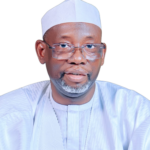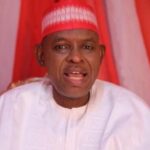The judgement of the Supreme Court has thrown up some important issues we need to resolve to properly situate the local government system in the structure of our government. There is apparent confusion about its place in the structure of our government. Is it a third tier of government and, therefore, a constituent unit of the federation or a constituent unit of the states? These are important questions we need to address to make some sense of the Supreme Court decision on the financial autonomy of the local councils.
Presidents Olusegun Obasanjo and Muhammadu Buhari believed the federal government had the right to monitor the finances of the local councils. The Supreme Court disagreed with them and threw out their legal attempts to assume the right not conferred on the federal government by the constitution. Their assumption arose from the fact that the local councils are paid from the federation account in accordance with the revenue allocation formula. Not a good enough reason, apparently, for the federal government to act on its presumption. Section 162 of the constitution grants to the states the right to take charge of the funds of the local councils through the local government joint accounts committee set up and managed in each state by the state government.
Despite the clear provisions of the section of the constitution under reference, the apex court has changed the mode of payment to the local councils. It strengthens the presumed right of the federal government to look over the shoulders of the councils on financial matters. The decision does not resolve the place of the local government system in the structure of our system of government. This is a clear invitation to confusion and conflict because it is unwise to treat the local governments as constituent units of the federation on financial matters and treat them in other respects as administrative units of the states.
Mr Justice Habeeb Abiru sees it rightly as a clear breach of the constitution too. In his dissenting judgement, he wrote: “The constitution did not grant the federal government of Nigeria any oversight functions over how the democratically elected members of the local government councils spend the funds allocated to them.”
The apex court has thrown a spanner in the works. The allocations to the local councils are their statutory right under the revenue allocation formula, not gifts from the federal government. As I see it, the councils may be paid directly from the federation account, but the chairmen know to whom they are accountable: the state governors, not the president. The local council chairmen and their councillors are all appointees or choices of the state governors. I cannot think of a local government chairman who will be bold enough or foolish enough to ignore his state governor in financial matters in the name of the financial autonomy of his council.
The real problem arises if the federal government assumes the right to exercise an oversight function over the local councils. State governors are likely to regard this as undue and unconstitutional interference. They will resist. The financial autonomy judicially awarded the local councils will collapse in fact and muddy the waters even more. The decision of the apex court thus becomes a solution sitting on a mound of unresolved issues about the place of the local government system in our structure of government.
What we are running away from is settling the place of the local government system in our governance system. The local councils have two masters, namely a pay master and a master that administratively owns them in law and in fact. It is an anomaly that needs to be resolved. It requires one master, not two. It is not a third tier of government and cannot be so treated in our governance system.
Let me draw your attention to another problem with the local councils as we have them today. We run two local government systems – one constitutional and the other administrative, called development areas. These are the local government areas created by some state governors shortly after the country returned to civil rule in 1999. They do not feature in the fifth schedule to the 1999 constitution that lists 774 local government areas. This means they are unknown to the constitution.
President Obasanjo did not think the states have the power to create new local government areas. His take was that creating new local councils required a constitutional amendment to accommodate them in the fifth schedule. He most probably believed that since the 774 councils were created by the military regime at the centre, only the federal government could create new councils. He withheld local government allocations to states that created new local councils to force them to cancel their newly created local government areas.
The governors refused to cancel them and instead renamed them development areas funded from the allocations to the local government areas from which they were created. No one has raised the constitutional issue here about the payment to development areas with funds allocated to the local government areas listed in the fifth schedule.
What to do? The 2014 political reforms committee set up by President Goodluck Jonathan, answered that question, to wit, give the local councils back to the states because they are constituent/administrative units of the states. This was the case in the first republic. To quote Abiru again: “The local government areas superintended over by the local government councils are component parts of the states.”
The local councils have become dysfunctional. The Tinubu administration is right to take steps to address the problems that impair their proper functioning as grassroots governments. But it must not ignore the fact that we run a federal system of government, not a unitary system of government. Under our system, the state governments, as constituent units of the federation, are given a measure of autonomy to properly function as governments with certain rights and autonomy duly granted them by the constitution.
Our long winter of military experience has sadly imposed on the country an anomalous federal structure of government described by Professor Isawa Elaigwu as military federalism in which the federal government grabs and exercises powers not conferred on it by the constitution. The states are wrongly and constitutionally treated as mere administrative units of the federal government. Again, we have ignored the need to curb the ambition of the federal government to treat the states in a manner clearly detrimental to our federal system of government. It is both important and necessary to restore to the states their autonomy and freedom consistent with best practices in federalism. A federal system cannot co-exist with military federalism.
The Tinubu administration must step back from what appears to be its plan loudly parroted about to give INEC the power to conduct local government elections. This will be a calculated assault on our federalism and further creates more problems. The states have their electoral committees or commissions that conduct local government elections. The elections are shameful and flawed, what with the total absence of opposition parties at the local government level. No one can deny that, but we cannot for that reason give to the centre the right of state governments to conduct their local government elections. It amounts to eroding the autonomy of the states; it flies in the face of true federalism. INEC cannot do a better job either of ensuring free and fair elections in the 774 local government and development councils.
Let us not pile it on. Whatever steps President Tinubu takes to right whatever is wrong with our governance system should be aimed at dismantling the current stifling military federalism and strengthening the nature of our federalism within the ambits of the supreme law of the land – the constitution of the federal republic.
(Concluded)

 Join Daily Trust WhatsApp Community For Quick Access To News and Happenings Around You.
Join Daily Trust WhatsApp Community For Quick Access To News and Happenings Around You.


